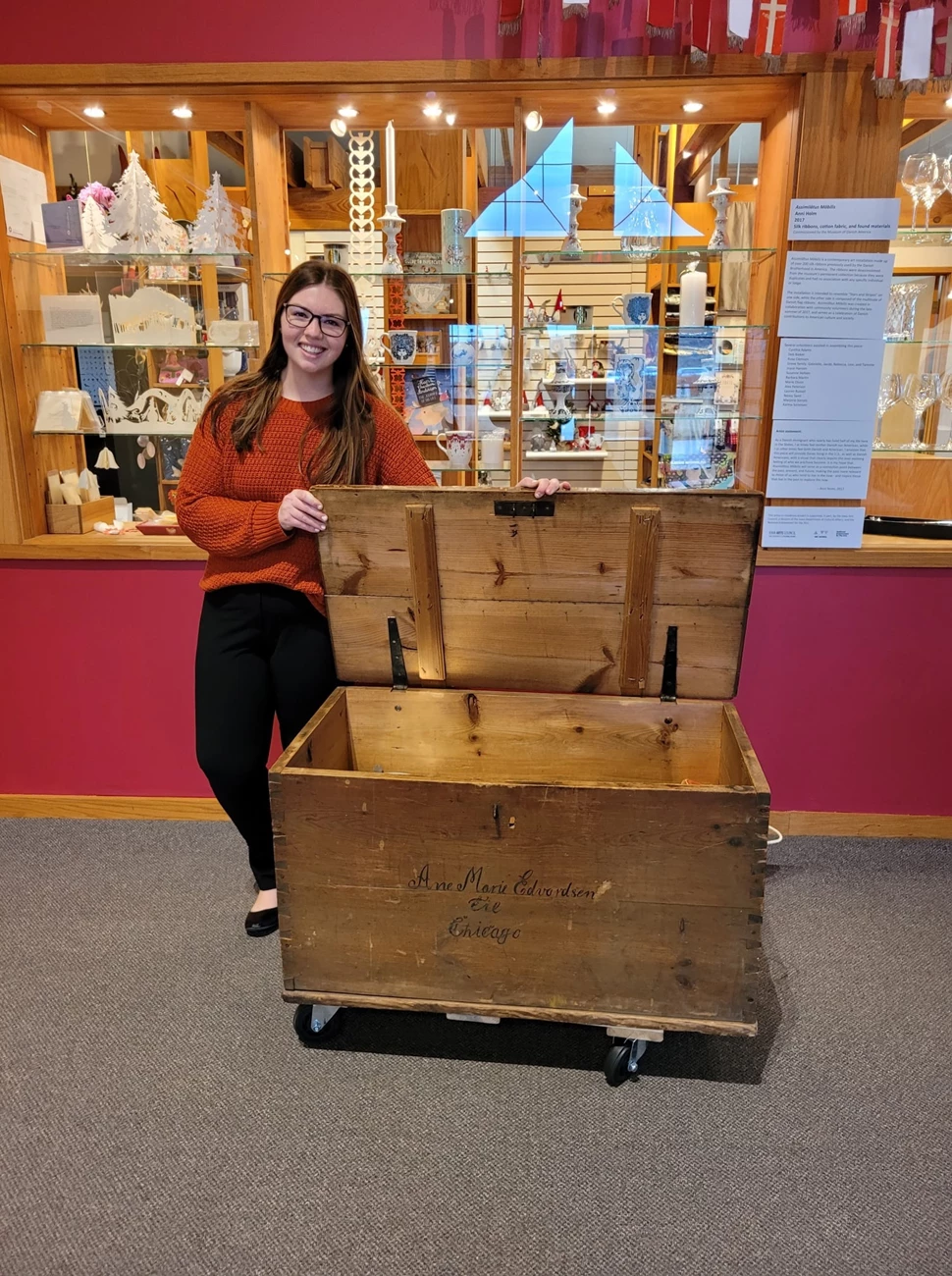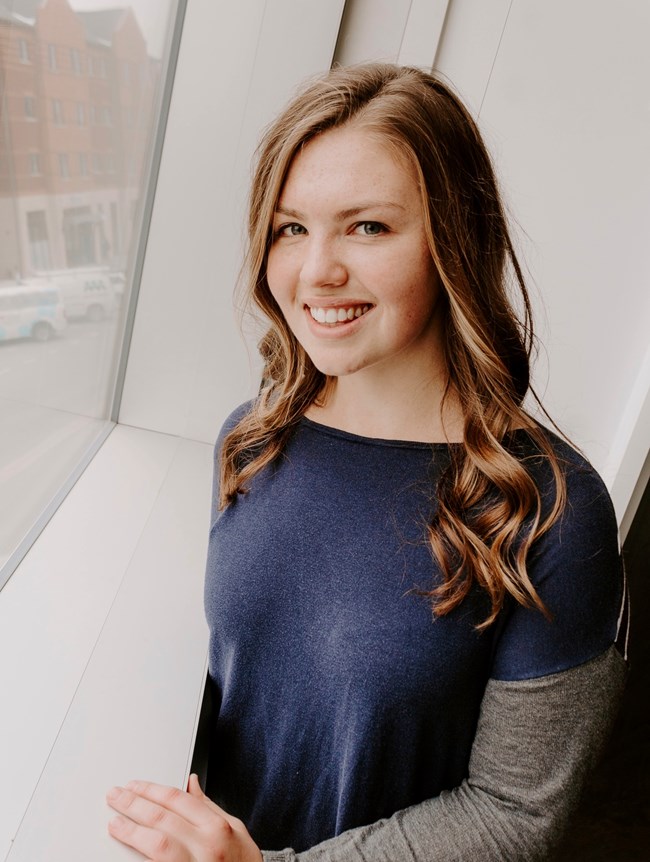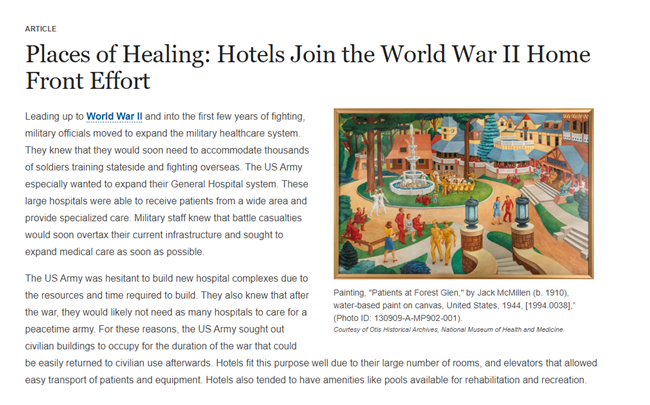Last updated: September 13, 2022
Article
Intern and Fellow Highlights: Hannah Haack

Courtesy of Hannah Haack
You may have heard of cultural resources, but what exactly does this work entail and what type of work do interns and fellows do? Find out through this intern and fellow highlight series that features the work of our interns and fellows service wide.
Everyone has a personal connection to cultural resources. Cultural resources help us define what makes us human through understanding the evidence we leave behind and continue to create today. This can include anything from archives, archaeological sites, museum collections, structures and cultural landscapes, and resources with significance to a group of people traditionally associated with them.
To learn more about cultural resources, visit the Cultural Resources, Partnerships, and Science Directorate page.
So... What exactly does a cultural resource internship look like?
Interns and fellows work with multiple offices, programs, and parks through partner organizations such as the American Conservation Experience (ACE) and National Council for Preservation Education (NCPE). They work on various projects that range from tribal consultation and policy to telling the stories of women in World War II and even to connecting local communities with public history.
Their work adds value to the National Park Service and supports our mission to preserve for the enjoyment, education, and inspiration of this and future generations.
Meet Hannah Haack (she/her) who is the National Council for Preservation Education (NCPE) Intern at the Cultural Resources Office of Interpretation and Education & Park History Program.

Courtesy of Hannah Haack
Tell me a bit about yourself?
I have always been interested in history, but in high school I wasn’t sure what jobs were available for historians besides being a professor. Instead, I wanted to take a “safe route” and go to medical school to become a doctor. My first semester of college at the University of Iowa, I took a chemistry class and did not enjoy it at all. Luckily, the history course that I took went much better! I listened to myself and accepted that science was not my strength. I enjoyed learning history much more anyways! I switched my major to history and began taking opportunities to immerse myself in my field, from volunteering at the State Historical Society of Iowa, writing a History Honors Thesis, and getting my first internship with a local historical society. In May 2021, I graduated with a degree in History, a minor in German, and a Museum Studies Certificate. Last April, I received a Fulbright grant to teach English in Germany. I definitely believe that my aspirations as a historian and the writing skills that history classes gave me helped me to be successful with that application. I’m excited to live and teach abroad this upcoming school year before going to grad school! In my free time, I enjoy hiking, traveling, and taking my dog on walks. I’m also an avid Iowa Hawkeye sports fan, especially basketball.
Tell us a little bit about what you do in your position?
I began my National Council for Preservation Education internship in January 2022 by identifying sites within the United States that had been surveyed by HABS/HAER/HALS that had importance to the WWII Homefront. My goal was to determine how many significant sites remained, and where they were located at. I also tried to determine what kinds of sites remained versus the sites that had been demolished since the end of the war. Now, I research and write articles for nps.gov about the sites I’ve found that have significance. I work remotely, so I must rely on digital libraries like the Library of Congress for my information. My personal research interests align well with my position, as I’ve always thought that WWII Homefront history and German history were very interesting. There are so many different aspects within the topic of Homefront history, like science, medicine, politics, and military history. It has been enough to keep me busy these past months!

NPS Photo
If you met a younger version of yourself, what would you tell them about your current career trajectory?
My younger self would think that my current position is pretty awesome. I think that my experiences— even the ones that led “nowhere”— shaped my interests now and how I approach different projects. I would tell myself to lean into interests and ideas that I have, and they will lead me exactly where I need to be… even if I have to go down a few dead ends first. Also, I would tell my younger self not to be afraid to apply for things like scholarships, internships, or jobs. There are things that I didn’t even want to apply for because they seemed too far out of my reach that I ended up receiving. Do not be the one to tell yourself no!
How do you see the field of cultural resources changing in the coming years?
More primary sources are being digitized, and more stories about previously marginalized histories are being brought to light. Also, more specifically, the 100th anniversary of World War II and the Holocaust is approaching. In the coming decades, a younger generation of historians will be grappling with how they want to view, portray, and memorialize the war a century later. My generation of historians will have to figure out how to continue researching World War II without the “Greatest Generation” providing new first-hand accounts. Historic preservation will become increasingly important in saving what does still exist.
Where do you see yourself in the future?
In the immediate future, I will be moving to Germany to teach English through the Fulbright Program. I am also hoping to enroll at a German university and take German history courses from the locals! After my year in Germany, I plan to enroll in graduate school to get a Masters in Public History and eventually get my PhD. I’ve really enjoyed my internship for the National Park Service, and I’d love to end up in a historian position for the federal government. Alternatively, I would enjoy working for a museum or historical society. I would be happy working for any place that allows me to do research!
You can read more of Hannah’s work by clicking the text with links below and by searching “Hannah Haack” on the NPS website search engine:
Places of Healing: Hotels Join the World War II Home Front Effort
Places of Public Health: Medical Research during World War II
For more information on CRPS internship programs contact Paloma Bolasny at e-mail us
For more information on youth and young adult programs and opportunities in the National Park Service, visit Youth Programs (U.S. National Park Service) (nps.gov)
